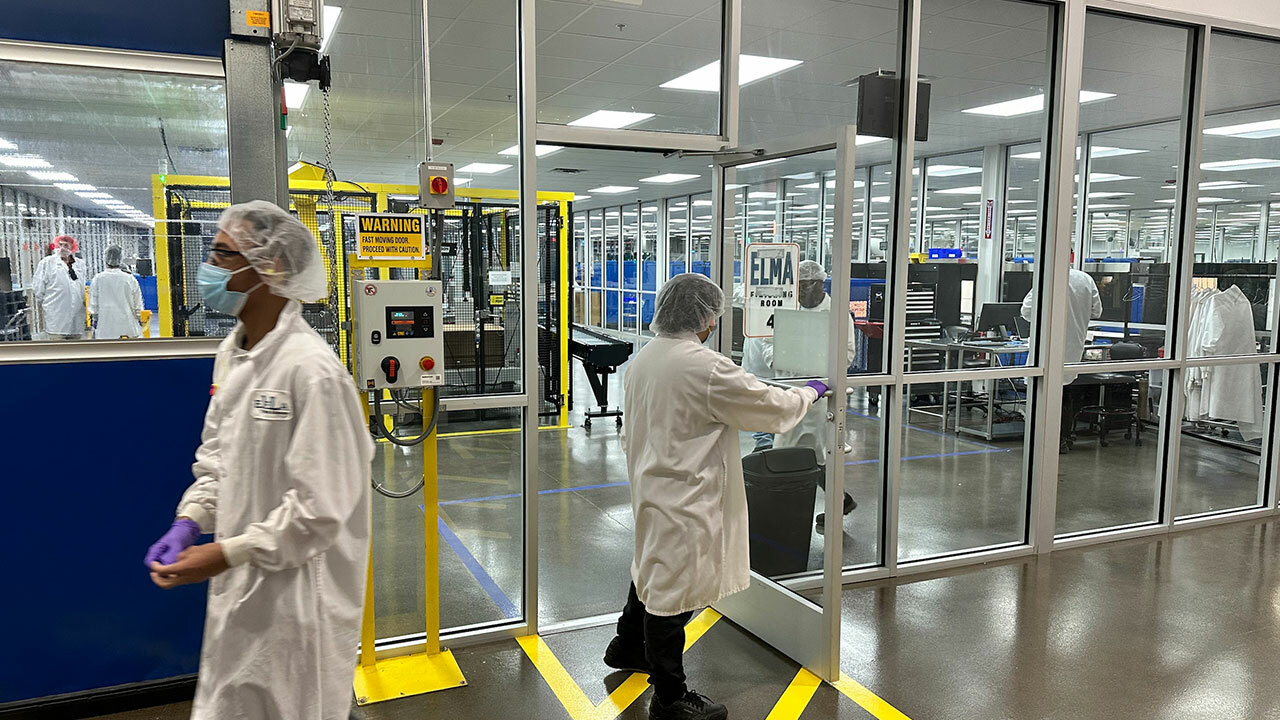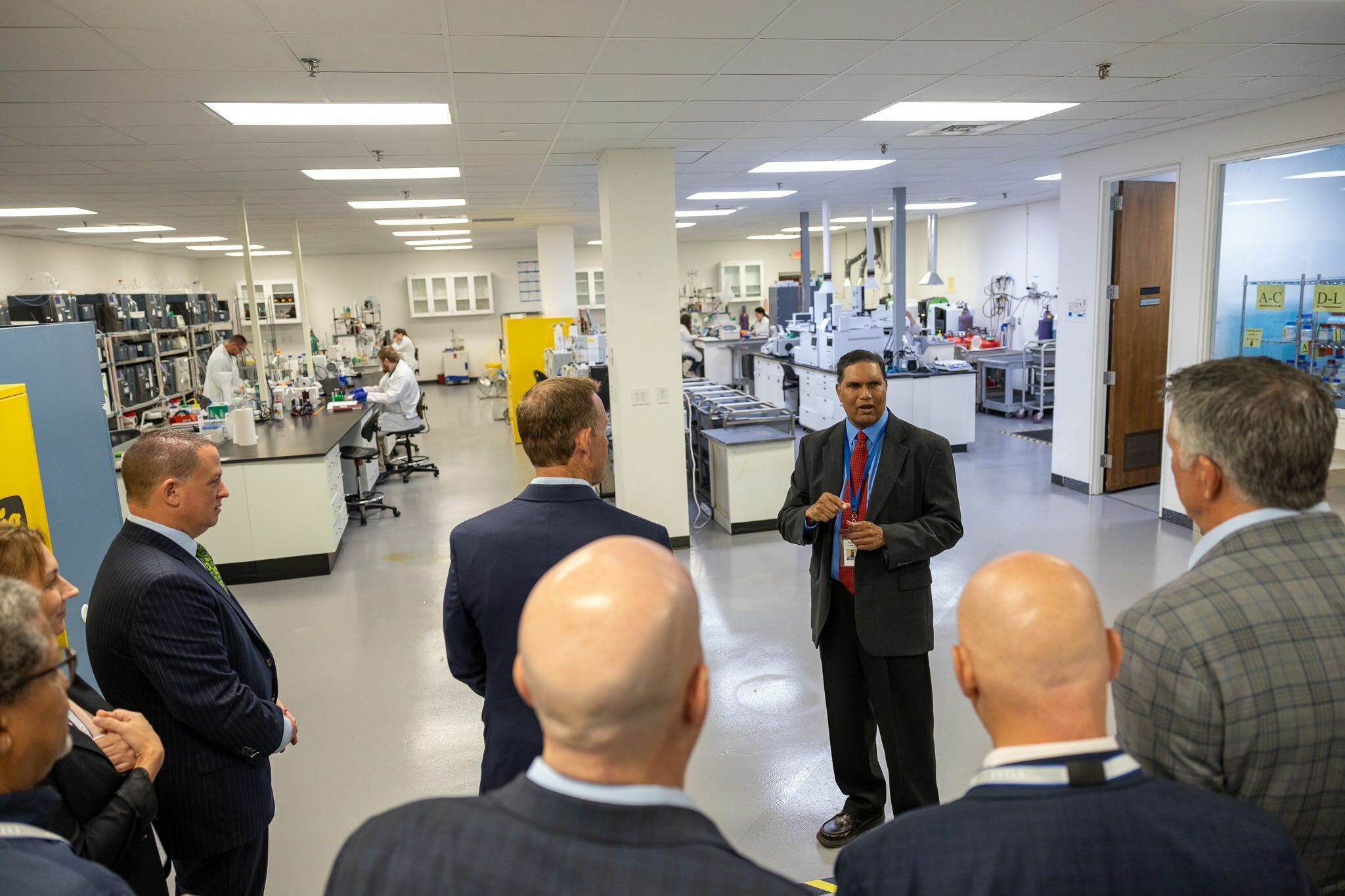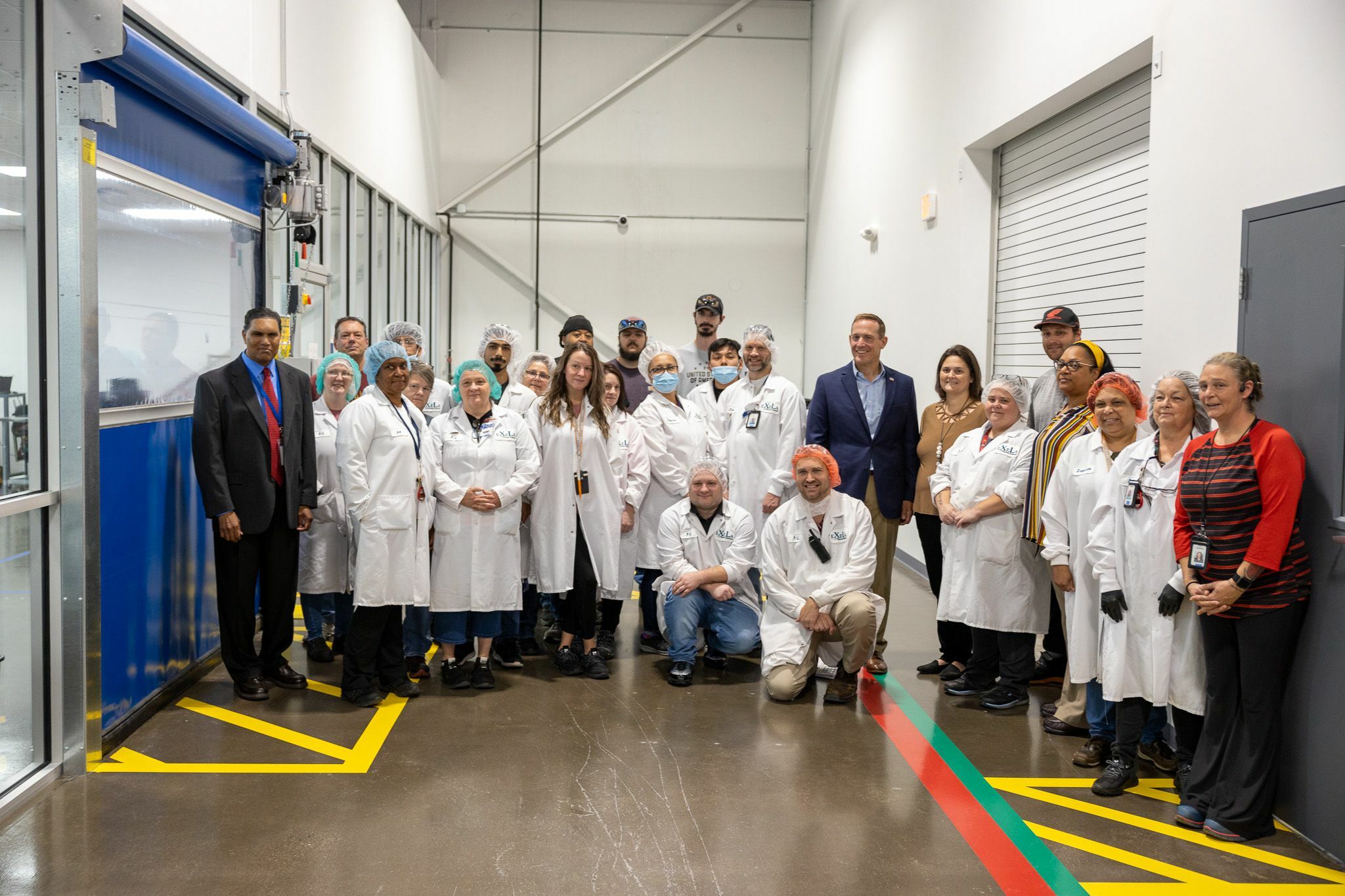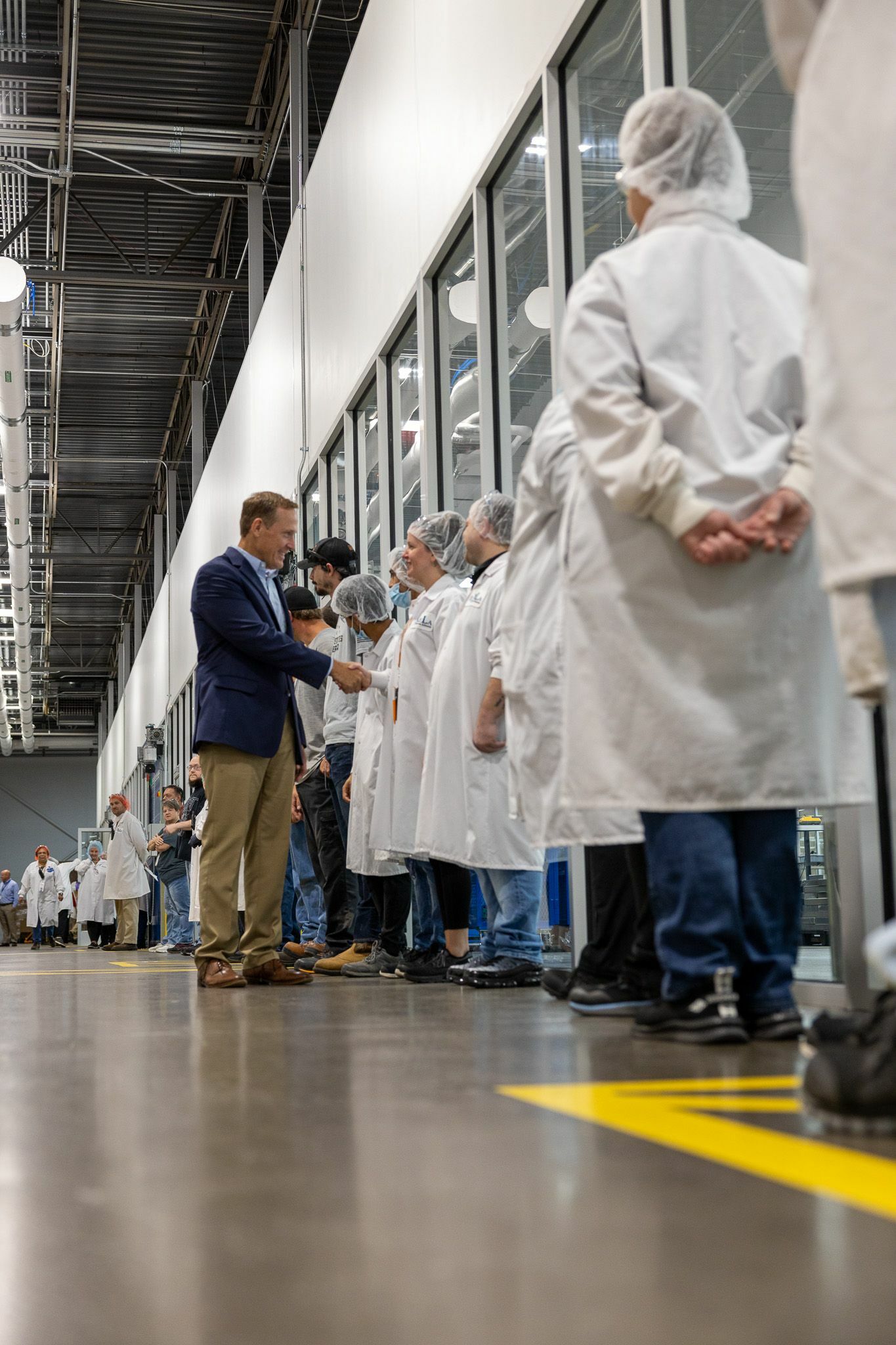A Look Inside Exela's Domestic Pharmaceutical Manufacturing Facility

Watch our new video to see how Premier, Exela® Pharma Sciences and Premier members are protecting the future of the pharmaceutical supply chain together.
Today, the Premier team, member health systems, community leaders and U.S. Senator Ted Budd (R-NC) visited Exela® Pharma Sciences’ Lenoir, NC headquarters and state-of-the-art manufacturing facility.
The facility tour allowed visitors to see first-hand how Premier, Exela and Premier members are working together to boost sustainable domestic manufacturing, help prevent and alleviate drug shortages and enhance supply chain resiliency for critical pharmaceuticals.


One of the most critical lessons we learned during the pandemic is that when we outsource too much of our manufacturing capabilities overseas, we create vulnerabilities here at home.
This overreliance led to widespread shortages for critical medical products and drugs during the pandemic. And it continues to put us at the mercy of future events – including natural disasters, disease outbreaks or geopolitical events.
This is why it’s so important to invest in domestic and diverse sources.
Concrete solutions that prevent and resolve drug shortages, and support greater domestic production, must decrease manufacturer barriers to entry – namely the time and cost to enter the marketplace.
Premier and our members’ investment in Exela (and other domestic producers) provide up-front liquidity, aggregated demand and buying commitments that take away the guessing game for manufacturers to give the surety needed to expand production, invest in redundancies, modernize facilities and drive innovations for sustainable resiliency.
The Exela investment:
- Gives providers access to 20+ high-quality, U.S.-made pharmaceutical products and safety stock.
- Includes several generic injectables that frequently appear on the U.S. Food and Drug Administration (FDA) drug shortage list, as well as 503B pharmaceutical products made by Exela.
- Gave Exela much-needed capital to invest in domestic production and drive innovations to bolster supply.
3 out of 4 healthcare and supply chain leaders say domestic manufacturing is an “extremely” or “very important” component to their organizations’ supply chain resiliency strategies, according to Premier’s recent survey.
With strong supplier relationships and armed with robust data and input from our valued members, Premier remains committed to building on these strong partnerships to:
- Create more domestic options;
- Support job creation for local economies; and
- Build partnerships to mitigate supply chain risks, product shortages and disruptions.
Together, we’re taking action and developing collaborative solutions to build healthier pharmaceutical markets and supply chains for providers, patients and communities.


